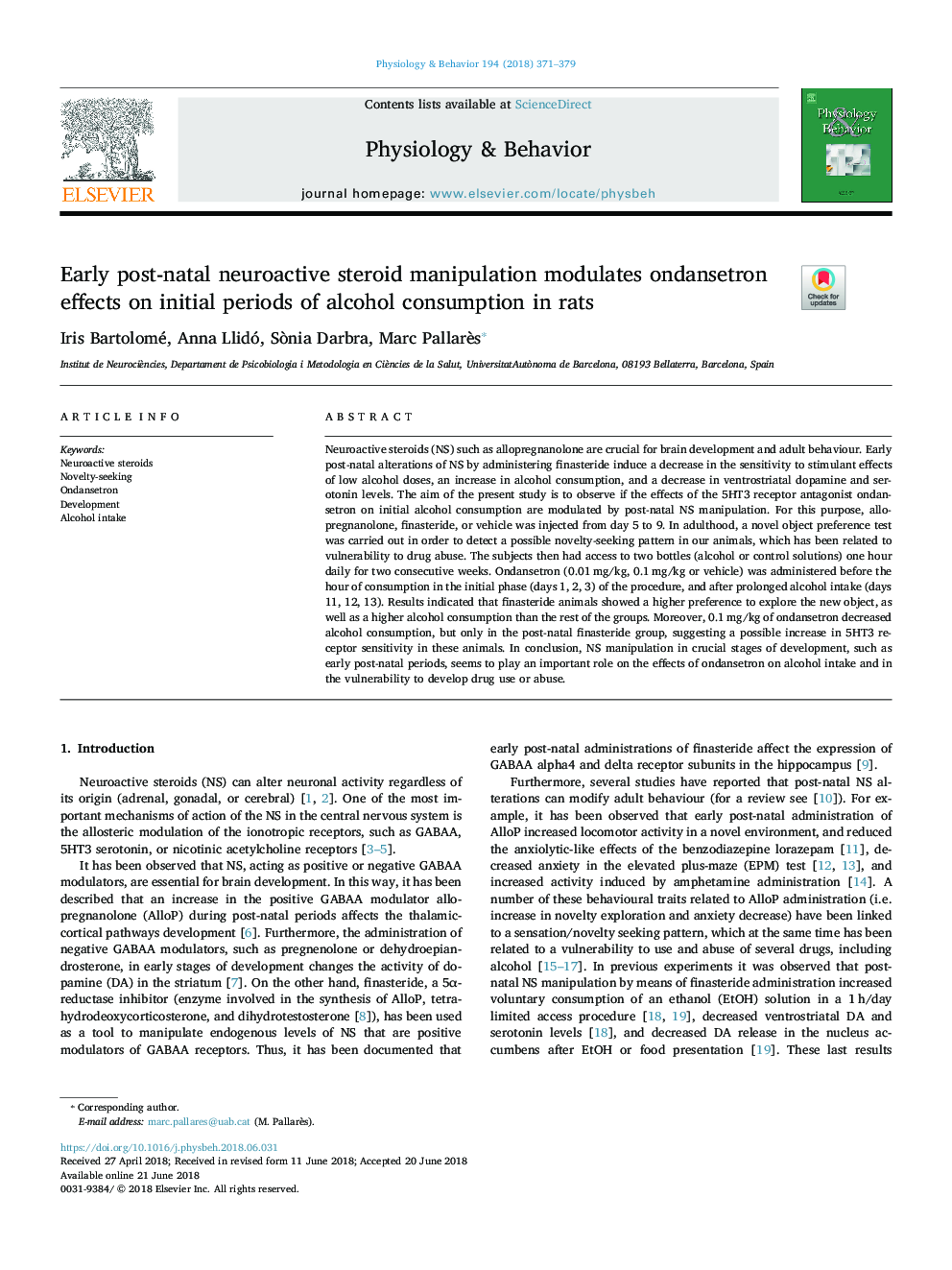| Article ID | Journal | Published Year | Pages | File Type |
|---|---|---|---|---|
| 8650305 | Physiology & Behavior | 2018 | 9 Pages |
Abstract
Neuroactive steroids (NS) such as allopregnanolone are crucial for brain development and adult behaviour. Early post-natal alterations of NS by administering finasteride induce a decrease in the sensitivity to stimulant effects of low alcohol doses, an increase in alcohol consumption, and a decrease in ventrostriatal dopamine and serotonin levels. The aim of the present study is to observe if the effects of the 5HT3 receptor antagonist ondansetron on initial alcohol consumption are modulated by post-natal NS manipulation. For this purpose, allopregnanolone, finasteride, or vehicle was injected from day 5 to 9. In adulthood, a novel object preference test was carried out in order to detect a possible novelty-seeking pattern in our animals, which has been related to vulnerability to drug abuse. The subjects then had access to two bottles (alcohol or control solutions) one hour daily for two consecutive weeks. Ondansetron (0.01â¯mg/kg, 0.1â¯mg/kg or vehicle) was administered before the hour of consumption in the initial phase (days 1, 2, 3) of the procedure, and after prolonged alcohol intake (days 11, 12, 13). Results indicated that finasteride animals showed a higher preference to explore the new object, as well as a higher alcohol consumption than the rest of the groups. Moreover, 0.1â¯mg/kg of ondansetron decreased alcohol consumption, but only in the post-natal finasteride group, suggesting a possible increase in 5HT3 receptor sensitivity in these animals. In conclusion, NS manipulation in crucial stages of development, such as early post-natal periods, seems to play an important role on the effects of ondansetron on alcohol intake and in the vulnerability to develop drug use or abuse.
Related Topics
Life Sciences
Biochemistry, Genetics and Molecular Biology
Physiology
Authors
Iris Bartolomé, Anna Llidó, Sònia Darbra, Marc Pallarès,
